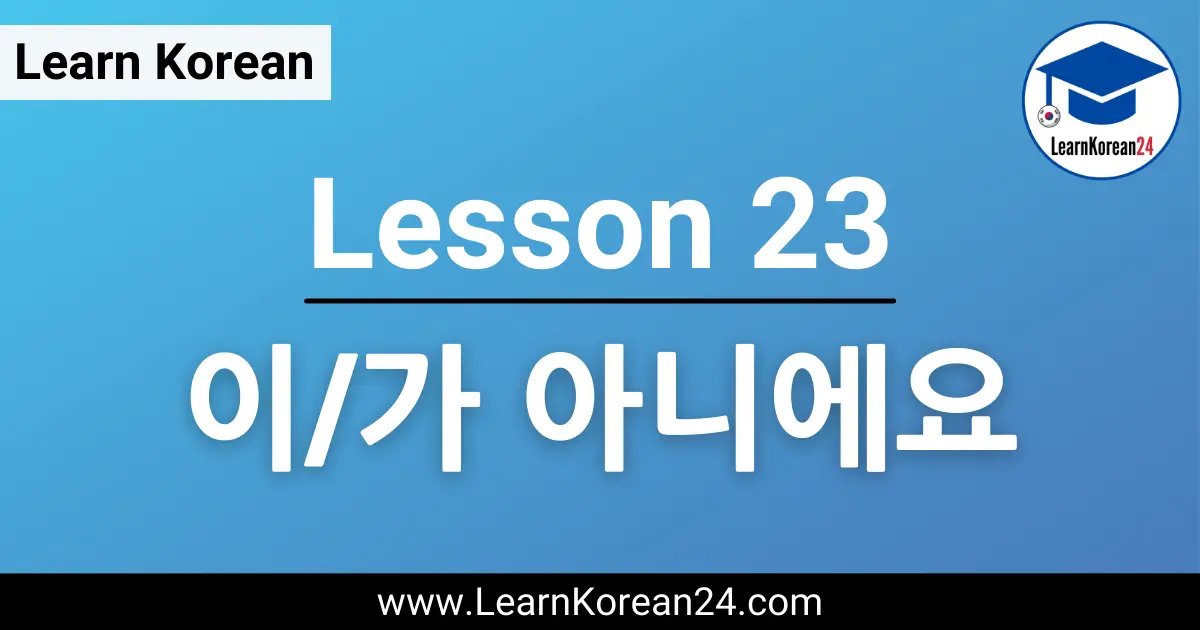Lesson 23: 이/가 아니에요
In this lesson, you will learn how to use the structure 이/가 아니에요 to say things like “It’s not a book.“, “I am not American.”, etc.
Lesson 23: 이/가 아니에요
In lesson 1 of this course, you learned that the ending 예요/이에요 means ‘equal to’ and is used to make sentences like “It’s an apple.“, “I am American.“, etc. 이/가 아니에요 is the negative form of 예요/이에요 and so it is used to make sentences like “It’s not an apple.“, “I am not American.“, etc. Let’s look at some more examples.
책이에요. = It’s a book. ↔ 책이 아니에요. = It’s not a book.
사과예요. = It’s an apple. ↔ 사과가 아니에요. = It’s not an apple.
The structure 이/가 아니에요 is made up of the particle 이/가 plus the present tense form of the adjective 아니다 (to be not). In everyday conversations, 이/가 is often dropped.
Conjugation Rules
When attaching 이/가 아니에요 to a noun you must choose either 이 아니에요 or 가 아니에요. The one you choose depends on whether the preceding noun ends in a consonant or vowel. See the table below.
| Conjugation Rule | Example |
|---|---|
| Noun Ends In Consonant + 이 아니에요 | 가방이 아니에요. (It’s not a bag.) |
| Noun Ends In Vowel + 가 아니에요 | 모자가 아니에요. (It’s not a hat.) |
Example Sentences
책이에요? = Is it a book?
아니요, 책이 아니에요. 공책이에요. = No, it’s not a book. It’s a notebook.
커피예요? = Is it coffee?
아니요, 커피가 아니에요. 차예요. = No, it’s not coffee. It’s tea.
학생이에요? = Are you a student?
아니요, 학생이 아니에요. 선생님이에요. = No, I’m not a student. I’m a teacher.
가수예요? = Are you a singer?
아니요, 가수가 아니에요. 요리사예요. = No, I’m not a singer. I’m a chef.
미국 사람이에요? = Are you American?
아니요, 미국 사람이 아니에요. 한국 사람이에요. = No, I’m not American. I’m Korean.
STUDY ONLINE WITH KOREAN ARAH!
Ready to take your Korean to the next level?
Get One-on-One Korean lessons from a qualified and experienced Korean language tutor!

